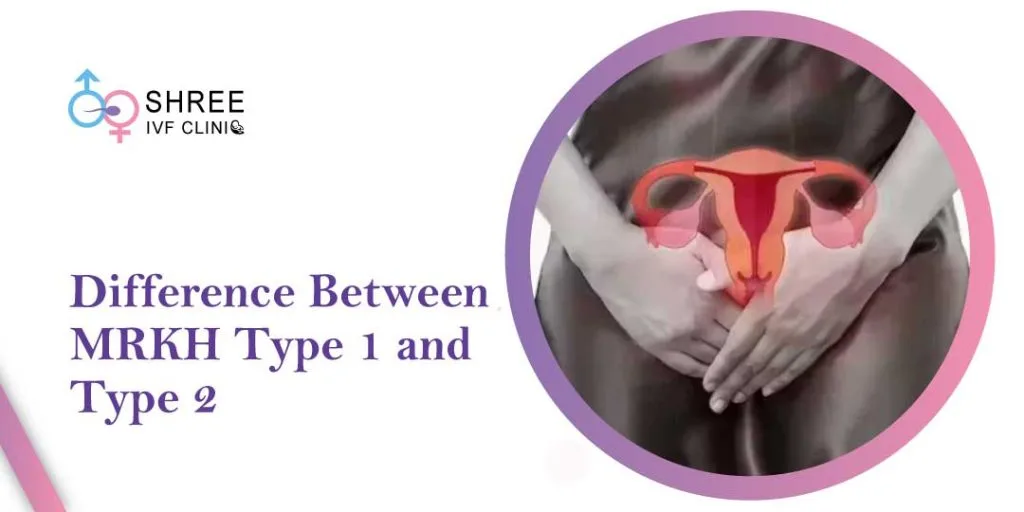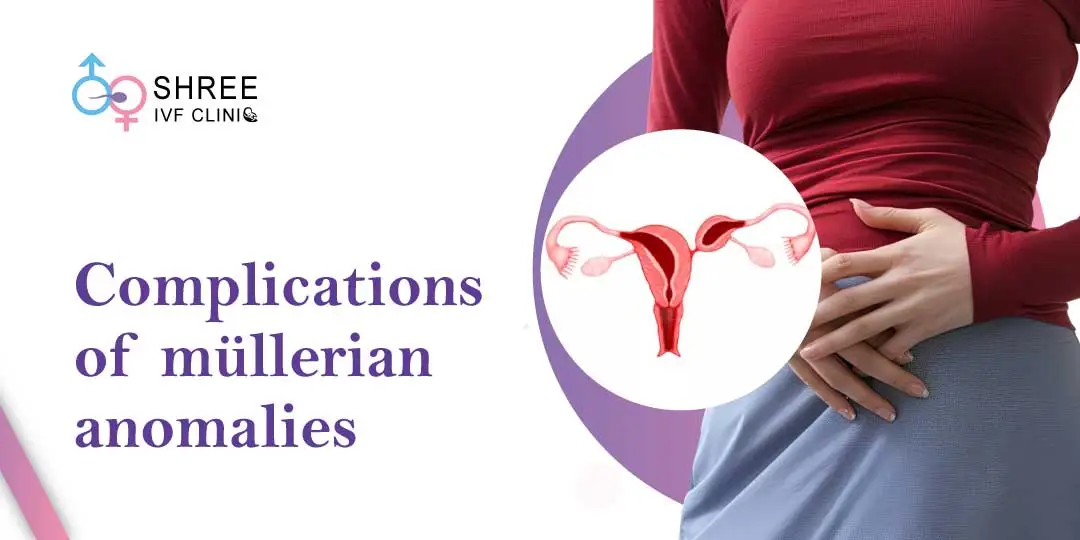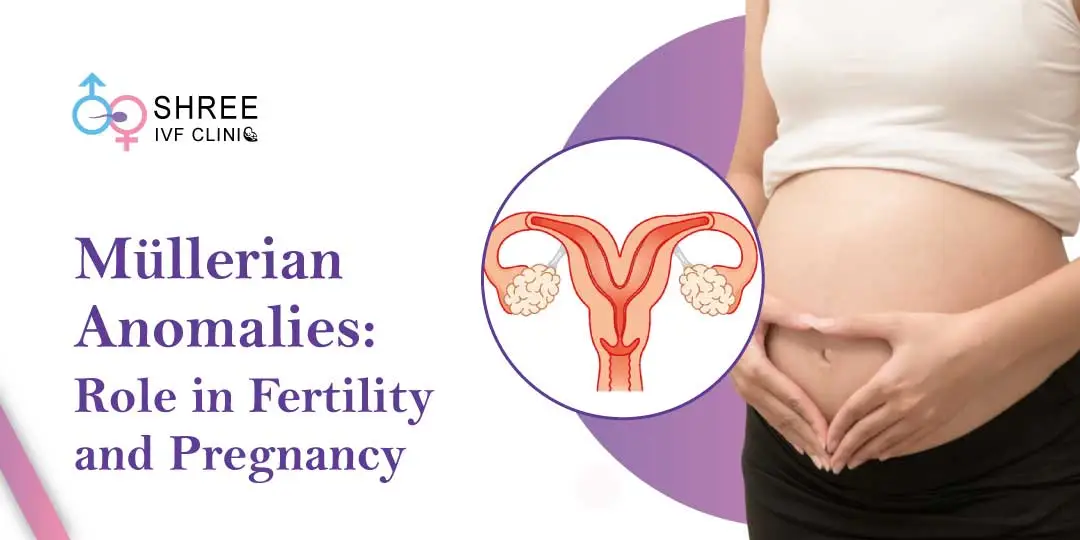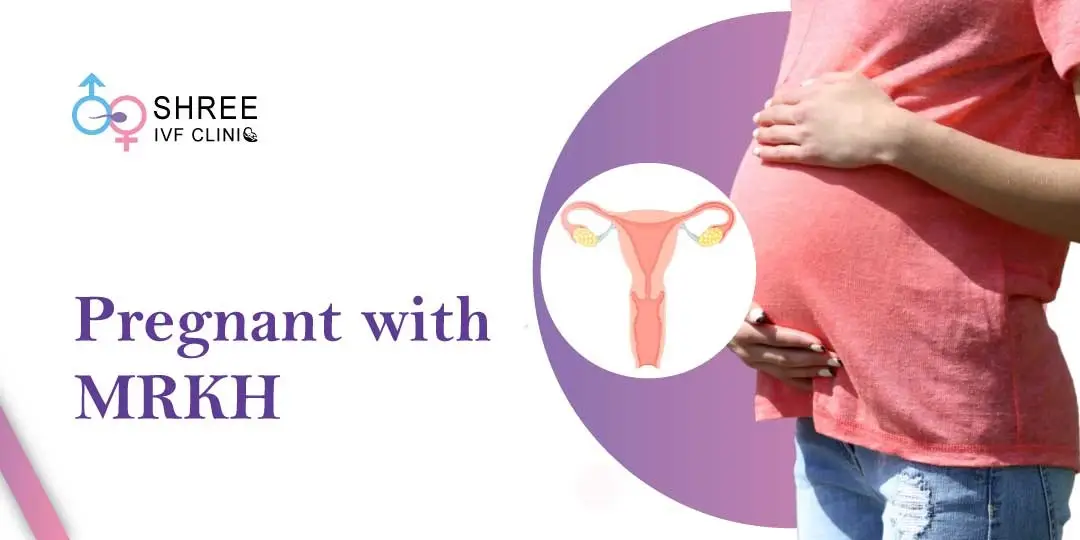What is the difference between MRKH type 1 and type 2?
UPDATED ON 16TH MAR. 2024
Mayer-Rokitansky-Küster-Hauser (MRKH) syndrome is a very unusual illness affecting women’s reproductive systems, resulting in uterine and vaginal malformations. It is critical for females diagnosed with MRKH and their loved ones to grasp the complexities of the disorder.
Two major categories within the MRKH spectrum are Type 1 and Type 2. This blog article is designed to thoroughly explain the distinctions between these categories, advising patients and improving the knowledge of healthcare professionals.

AUTHOR
Dr Jay Mehta
Scientific Director & IVF Specialist with 10+ years of experience
CONDITION
GET IN TOUCH ON
MRKH Type 1: The Basics
MRKH Type 1, also known as isolated Müllerian agenesis, is distinguished by the lack of the uterus and the top two-thirds of the vagina, along with intact external genitalia. It is one of the most common congenital malformations of the female genital system, occurring in around one in every 4500 live female births.
Symptoms and diagnoses
Women with MHRK Type 1 often learn they have the illness throughout their adolescence when they stop menstruating. Other symptoms may include hormonal irregularities, such as a lack of breast growth or the start of menopause. An examination and imaging procedures, such as an ultrasound or MRI, are usually used to confirm the diagnosis, which shows the absence of the uterus and upper vagina.
Treatment and prognosis
The major objective of treating MRKH Type 1 is to address the disorder’s physical and emotional elements. This may entail surgically creating a neovagina or dilation of the vagina, both of which can improve the patient’s quality of life. The prognosis varies, but many women may have healthy and satisfying lives with the right care and support.
Understanding MRKH Type II
MRKH Type 2, also known as the MURCS association, is differentiated by renal, skeletal, and up to seven other developmental defects. This kind of MRKH is less prevalent than kind 1, although it manifests with a more complicated collection of symptoms.
Distinctions from Type 1
Type 2 is distinguished by related malformations, notably those affecting the kidneys and skeletal system. These may include aberrant kidney form and function and skeletal anomalies such as fusion or missing bones. Understanding and recognising these linked characteristics is critical since they influence diagnostic and treatment approaches.
Diagnostic Challenges
Given the breadth and complexity of the accompanying abnormalities, diagnosing MRKH Type 2 often necessitates a multidisciplinary approach. Specialists in gynaecology, genetics, urology, and nephrology may need to work together to achieve a thorough evaluation. Imaging methods and genetic testing may be useful tools for evaluating the severity of the illness.
Treatment Approaches and Outcome
The care of MRKH Type 2 is often more difficult, necessitating coordinated treatment approaches to address the numerous irregularities. Renal and skeletal difficulties may have a substantial influence on therapy options for the disorder’s reproductive, urological, and endocrine components. Tailored treatment programmes, which sometimes include several procedures, are created to provide the best potential results for the patient.
A Comparative Analysis of MRKH Type 1 and MRKH Type 2
A thorough comparison of Type 1 and Type 2 MRKH is essential for understanding the differences. Identifying similarities and differences may help patients and clinicians provide more accurate and effective treatment.
Highlighting the similarities.
Both forms have the same feature: the absence or underdevelopment of the uterus and upper vagina. This similarity not only creates the major diagnostic problem, but it also allows for comparable therapeutic choices, such as vaginal creation operations, as well as a greater need for psychological support.
Unpacking the Differences
The existence of related abnormalities distinguishes Type 2. These extra aspects not only need alternative diagnostic approaches, but they also influence overall management and treatment tactics. While Type 1 may benefit from a more standardised treatment strategy, Type 2 requires a personalised plan customised to each patient’s constellation of concerns.

4,790+
379K+
” Every individual and couple’s journey is unique, and
finding the right solutions tailored to their specific
circumstances can make all the difference “
Choosing the Right Course of Treatment
For those with MRKH, finding the correct healthcare team is important. Specialists with experience dealing with uncommon genetic diseases and reproductive abnormalities may provide the guidance the patient needs throughout the diagnostic, treatment, and post-treatment stages.
Who to consult?
Gynaecologists who specialise in reproductive abnormalities, urologists, geneticists, and psychologists are all experts that should be included on the patient’s care team. Genetic counsellors may also provide useful insights into the disorder, especially in Type 2 MRKH, where genetic investigations may reveal underlying reasons.
The Value of a Support Network
In addition to a medical team, having a support network that understands the emotional and psychological elements of living with MRKH is essential. Patient advocacy organisations and support networks may link others with similar experiences, decreasing feelings of loneliness and offering a forum for sharing coping skills.
Navigating the MRKH journey
Understanding the distinctions between MRKH Types 1 and 2 and the therapeutic implications is a positive step for patients. It enables them to make educated healthcare choices and contributes significantly to their well-being.
Those afflicted with MRKH are encouraged to consult medical specialists who have expertise treating this ailment. Individuals with the correct skills and assistance may learn to manage their disease, allowing them to live full and meaningful lives despite the obstacles they may confront.
Finally, a call to action is issued to increase awareness in the larger healthcare community regarding the significance of early detection and complete treatment of MRKH. By doing so, we can guarantee that people with this disease get the care and assistance they need.
AUTHOR
Dr Jay Mehta
Scientific Director & IVF Specialist with 10+ years of experience
CONDITION
CALL US 24/7 FOR ANY HELP
GET IN TOUCH ON
Share Article on
Recommended Reading
Are Mullerian Anomalies a Problem For Infertility?
Uncover how Müllerian anomalies affect fertility in our in-depth blog. From diagnosis to treatment, learn actionable insights for informed decisions on your reproductive health journey.
Müllerian Duct Anomalies: Role in Fertility and Pregnancy
Explore Müllerian Duct Anomalies’ impact on fertility and pregnancy. Discover types, diagnostics, treatments, and antenatal care with expert guidance.
Can You Get Pregnant with MRKH?
Curious about pregnancy with MRKH syndrome? Discover fertility options and treatment insights in our comprehensive blog. Learn about the impact of MRKH on conception, diagnostic methods, and the latest reproductive technologies.




